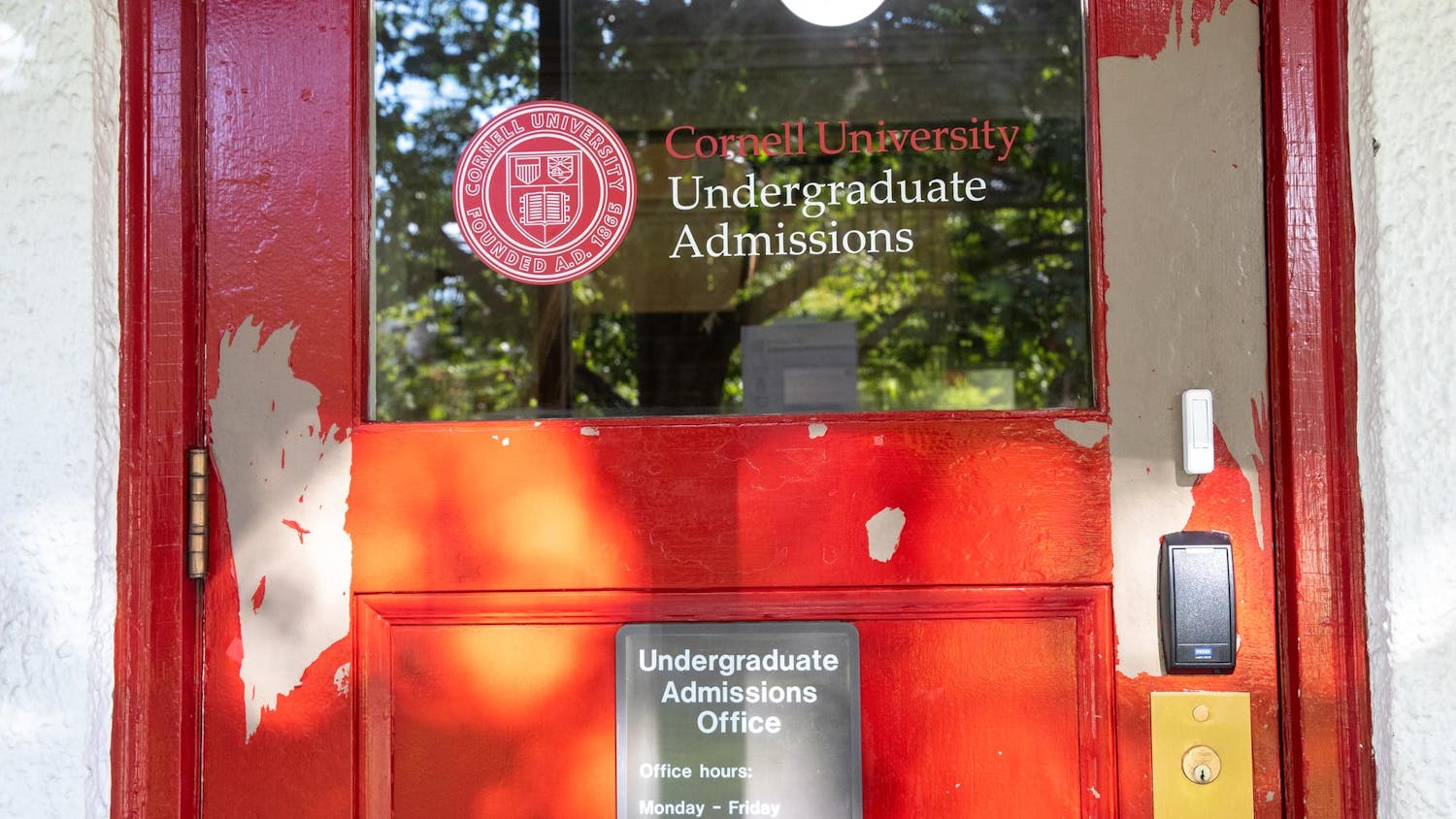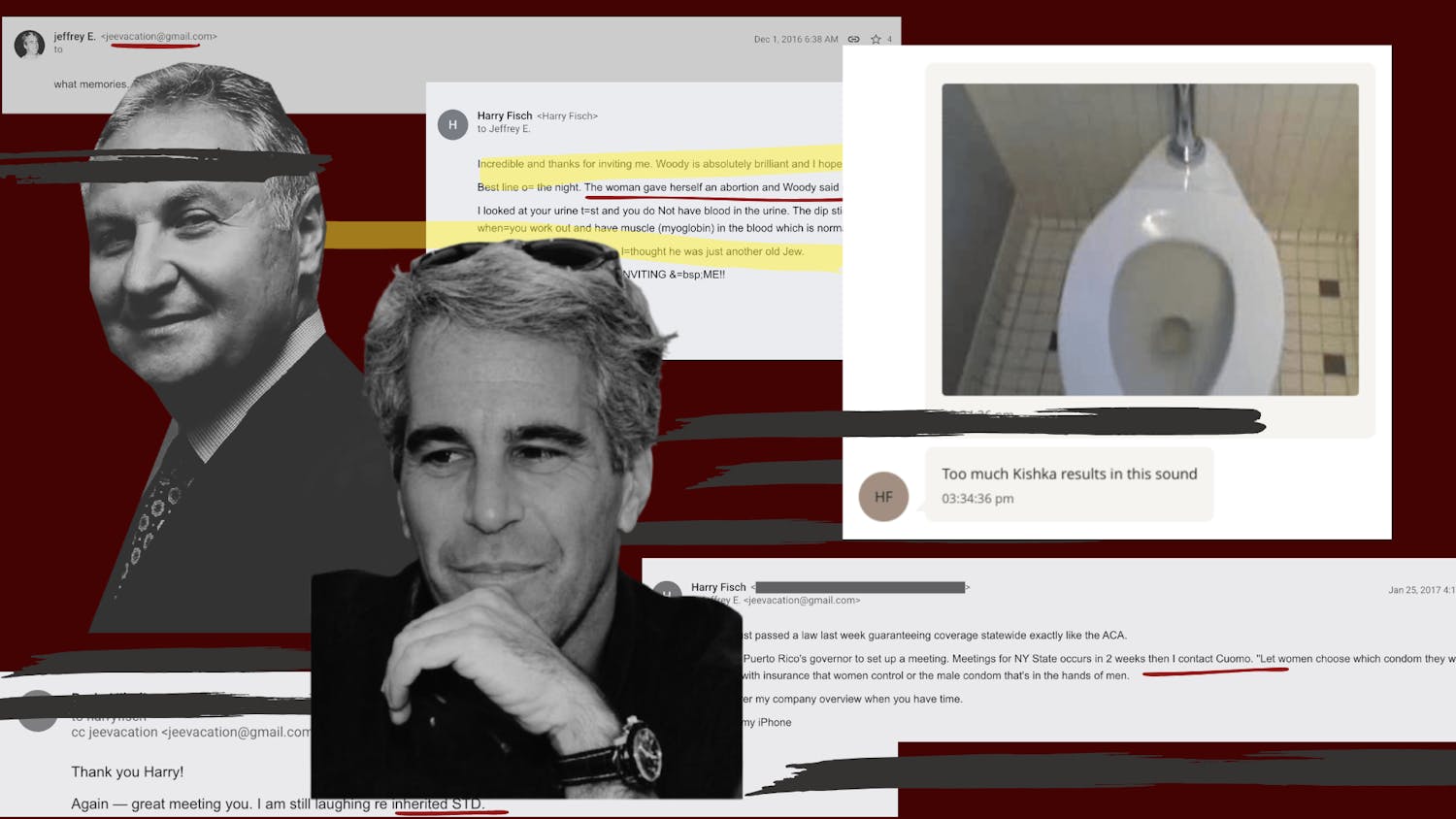In a Friday evening lecture, President of Heartland Alliance Evelyn Diaz and Prof. Jens Ludwig, public policy, University of Chicago, argued that insights from behavioral science could be critical for reducing gun violence in the United States by helping people de-escalate conflicts.
As gun violence rates rose sharply across the country during the pandemic, many are looking for solutions. At the same time, there is growing concern across the United States about the need for criminal justice system reform. Ludwig and Diaz argue that behavioral science-based interventions to help people learn to de-escalate conflict are a key for reducing gun violence.
The lecture was supported by a gift from Mark Horowitz and Jennifer Koen-Horowitz ’93, and was co-sponsored by the Cornell Institute for Public Affairs, the Sloan Program in Health Administration and the Jeb E. Brooks School of Public Policy. It was hosted by Prof. Rosemary Avery, public policy, and Prof. Max Kapustin, public policy.
Ludwig said two common strategies that are proposed for reducing gun violence are poverty reduction and imprisoning people who commit crimes. But, he argued, much of gun violence is neither an intentional effort for material gain, such as armed robbery, nor previously planned actions to hurt another person.
“About 70 percent of the murders that happen in American cities are basically arguments that go sideways because nobody de-escalated and a gun was present and turned it into a tragedy,” Ludwig said. “That’s the gun violence problem in America right there.”
To help reduce rates of violence, Ludwig suggested teaching people — including children — to de-escalate conflict.
Ludwig conducted a large-scale, randomized control trial of the “Becoming a Man,” program which had been developed by a Chicago organization called Youth Guidance to help participants de-escalate high stakes situations. BAM exercises focused on trust and community building, role playing and skill building.
The trial saw a significant reduction in violent crime arrests. Ludwig is hopeful that the promising outcomes of these studies will help inform gun violence regulation in America.
Diaz agreed with Ludwig that teaching people de-escalation strategies can be effective in reducing gun violence based on her experience at The Heartland Alliance. The organization runs the READI Chicago Program, which includes paid transitional work, job training, coaching and multiple sessions of cognitive behavioral interventions per week for men at high risk of experiencing gun violence based on factors including referrals from community organizations.
According to Diaz, preliminary results suggest the program has been successful in reducing the odds of being arrested or involved in violence for participants in comparison to those in group that did not go through the program. According to the READI website, participants learn to less immediately react to stress, slowing down their reactions and de-escalating where possible.
“[The participants] care about doing right by their families, their children, their moms, their grandmas,” Diaz said. “They're resilient, they're ambitious...The fact that they're showing up consistently to the program means that they see a different possible future for themselves.”
According to Diaz, Biden’s Build Back Better plan may include some funding for community violence prevention, which makes her hopeful for more large-scale intervention efforts.
“Remember our collective humanity, center in your work. If we do that we're not only going to bring evidence-based policy and practice to bear at scale, but we'll elevate the people and the communities that have been most harmed by gun violence,” Diaz said. “We're going to help them heal and rebuild.”
Avery, one of the professors who helped organize the event, hopes that attending the event taught students to think critically and creatively about policy solutions to social issues.
“I'm trying to try to teach the students in public policy to think outside the box and not to assume the way we've done things in the past is the way we should do things in the future,” Avery said. “We need to think creatively about public policy.”
Aiyana Green ‘22, the head teaching assistant of Prof. Avery’s Policy Analysis & Management 2300: Introduction to Policy Analysis course, found the lecture engaging and informative. The most impactful part of the lecture for Green was hearing about aspects of the READI program from the participants themselves via a video that was shown during the presentation.
Julia Cerio ’23, another TA for the policy analysis class, hopes that people will come away from this lecture with a more open-minded perspective when approaching the gun violence crisis in America.
“Both of the lecturers really humanized the [gun violence] epidemic. I appreciated how Ms. Diaz put faces to the crisis in her work with READI,” Cerio wrote in an email to the Sun. “I hope that people will move forward from this seminar with a more open-minded perspective on one of the most pressing policy crises in America.”











